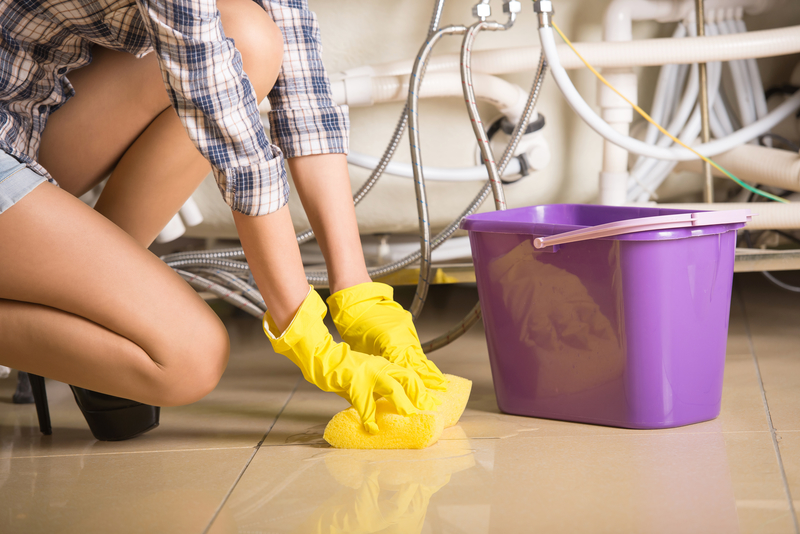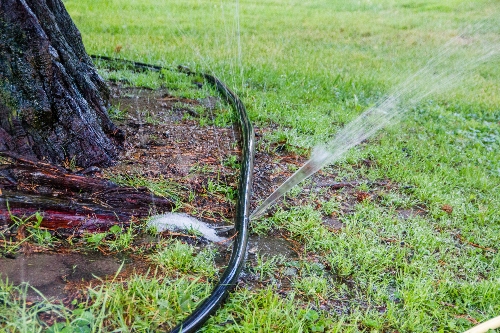The 5 Reiterative Water Leak Factors
The 5 Reiterative Water Leak Factors
Blog Article
Just about everyone seems to have their personal idea with regards to Where to Find Water Leaks.

"Be careful of little costs. A little leakage will certainly sink a great ship." - Benjamin Franklin.
He could not have actually been extra ideal because water leaks in our houses cause a waste of sources, boosting our water expenses. Although this boost could seem minimal initially, it can result in substantial expenditures that can damage your financial institution. Aside from an increase in expenses, water leakages likewise trigger unwanted organic development, architectural damage, as well as also electric risks.
Figuring out if you have a water leak isn't always very easy as a result of being incapable to see the majority of the pipework in your home. Nonetheless, If you have had a boost in your water bills lately, saw water spots on wall surfaces as well as ceilings, smelt lousy odor, and so on. You could wish to think about requesting plumbing solutions to get it had a look at.
There are numerous reasons for water leakages, and also we have put together the common reasons below. Examine to see if you have actually had relevant concerns in your house recently.
Clogged drains
Food bits, dust, and also oil can cause blocked drains pipes and block the passage of water in and out of your sink. Enhanced pressure within the rain gutters can finish and create an overflow up fracturing or breaking pipelines if undealt with. To stay clear of clogged up drains pipes in your house, we encourage you to stay clear of pouring particles down the drain and routine cleansing of sinks.
High water stress
You saw your home water stress is higher than normal however after that, why should you care? It's out of your control.
It would be best if you cared because your typical water pressure should be 60 Psi (per square inch) and also although your residence's plumbing system is created to stand up to 80 Psi. A rise in water pressure can place a pressure on your residence pipes and bring about splits, or worse, burst pipelines. If you ever before discover that your residence water pressure is higher than normal, contact a professional about regulating it.
Rust
As your pipework ages, it gets weaker and also a lot more prone to rust after the frequent flow of water via them, which can gnaw at pipes as well as create splits. A visible indicator of deterioration in your home plumbing system is staining and also although this may be tough to identify as a result of the majority of pipes hidden away. We suggest doing a regular check-up every couple of years as well as change pipelines once they are old to make certain a sound plumbing system
Damaged pipeline joints
Pipeline joints are the parts of our plumbing system where the pipes link. It is crucial to keep in mind that even though pipes are designed to hold up against stress as well as last for a while, they weren't developed to last forever; therefore, they would certainly degrade over time. A typical sign of harmed pipeline joints is excessive sound from faucets.
Damaged seals
An additional source of water leakages in homes is broken seals of house devices that make use of water, e.g., a dishwasher. When such home appliances are set up, seals are mounted around water connectors for very easy passage of water with the machine. For this reason, a busted seal can cause leak of water when in operation.
With little or no knowledge of plumbing, comprehending your residence's plumbing system enough to repair a few of these problems (without consequence) can be an inconvenience. Connect with plumbing specialists in Pittsburgh, Divine Superintendence, Rochester, and also environ today, and they'll make those problems disappear.
He could not have been much more ideal since water leaks in our houses result in a waste of resources, raising our water bills. If you have had a rise in your water bills recently, noticed water spots on wall surfaces and ceilings, scented poor smell, etc. A rise in water pressure can place a stress on your house pipes as well as lead to cracks, or even worse, ruptured pipes. An additional cause of water leakages in homes is damaged seals of home devices that use water, e.g., a dishwasher. When such home appliances are installed, seals are set up around water adapters for easy flow of water with the maker.
5 TIPS IN DETECTING A WATER LEAK IN YOUR HOUSE
Water leaks can be hard to find in your home, yet they can be so common. We rely on water every day in our home, which is why a leak can cause big problems. By detecting them early, you can save money and further damage, getting the problem fixed as soon as possible. Here are 5 tips to help you detect a water leak in your home, so you can contact a plumber straight away and get the issue sorted.
Check your water meter
Many people underestimate the value of the water meter in their home. It can be one of the best ways to tell if you have a leak early on, so you can get on top of it before issues start arising. Start by turning off all the water in your home: taps, washing machine, dishwasher, etc. Now take a look at the meter – if it’s still changing with everything turned off, it’s likely you have a fast-flowing leak that you need to get on top of straight away. If nothing changes, then leave your meter for an hour or two and come back to it. Did it change in this time? It’s likely you have a slower leak, which isn’t as urgent but still handy to get fixed so it doesn’t become a bigger problem.
Keep an eye on your bill
Another good way to detect a leak in your home is by keeping an eye on your water bill. It helps if you have a past bill from the same period of time. You can compare like for like and determine whether your water usage has increased significantly. If it has, there may be a leak in your system that you haven’t picked up before. A professional plumber can check through all of your pipes and determine where it is coming from.
Look for damage
If you have a leak inside your home, you will notice damage over time. Take a look at your showers and bathtubs and note whether any of the tiles surrounding the area seem to be discoloured or damaged in any way. There may be water stains, mould or peeling material that has resulted from a build up of moisture over time. Make sure you take a look under sinks at the back of cupboards that don’t get accessed regularly. This is where damage can go unnoticed and build up over periods of time.

I came across that blog posting about How to Find and Prevent Water Leaks in Your Home while doing a lookup on the web. If you appreciated our blog post please make sure you remember to pass it around. Thanks a lot for taking the time to read it.
Request our service. Report this page